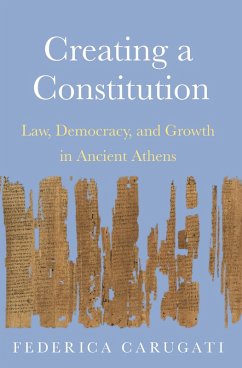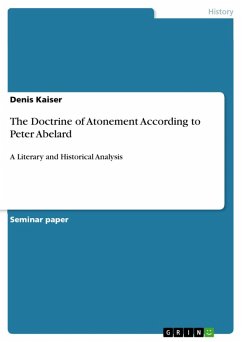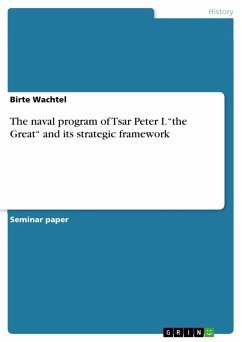
Magna Carta - the later constitutional significance (eBook, ePUB)

PAYBACK Punkte
0 °P sammeln!
Essay from the year 2003 in the subject History of Europe - Middle Ages, Early Modern Age, grade: 56 %, University of Wales, Aberystwyth (Department of History), course: HIH. 3126: Magna Carta, language: English, abstract: England is rightfully seen as the birthplace of parliamentarinism, which reaches back to the Magna Carta. Even the Anglo Saxon period knew an early form of parliament, the "witenagemont"1. This was the council of the elders and it did not end with the invasion by William the Conqueror - instead a council2 of the crown vassals was introduced, but with roots in the "witenagemo...
Essay from the year 2003 in the subject History of Europe - Middle Ages, Early Modern Age, grade: 56 %, University of Wales, Aberystwyth (Department of History), course: HIH. 3126: Magna Carta, language: English, abstract: England is rightfully seen as the birthplace of parliamentarinism, which reaches back to the Magna Carta. Even the Anglo Saxon period knew an early form of parliament, the "witenagemont"1. This was the council of the elders and it did not end with the invasion by William the Conqueror - instead a council2 of the crown vassals was introduced, but with roots in the "witenagemont". William the Conqueror was crowned King of England in 1066 and his reign marks the end of several invasions, which had begun since 450 AD. After the Roman withdrawal from the British Isles the resulting power vacuum encouraged invaders from the continent. The Romano- British neither had the weapons nor the army to make use of the Roman military structures and fell back on their traditional hill forts but were ultimately unable to stop the German advances. The Anglo-Saxons and Danes founded several kingdoms in England. They were predominantly peasants and forest dwellers and fortified their villages and towns with earthen banks and timber palisades and constructed massive earthworks along the borders of their Kingdoms. To return to the Normans, the Norman castle was not just a new form of military architecture; it was the product of a complex military society that had been created in Europe during the 9th and 10th centuries AD. The feudal system was an acknowledgement of the difficulty of running and defending a large country without a well-developed administrative system, without efficient communication, and without a standing army. In theory at least, all land belonged3 to the King and was held as a fee or payment from him in return for various political, administrative and military services. [...] 1 danaelayne.com/anglosaxons.ppt (21.02.2003) 2 This was the Magnum Concilium. 3 Kurt Kluxen, Geschichte Englands (Stuttgart: Kroener Verlag, 1991), 40.
Dieser Download kann aus rechtlichen Gründen nur mit Rechnungsadresse in A, B, BG, CY, CZ, D, DK, EW, E, FIN, F, GR, HR, H, IRL, I, LT, L, LR, M, NL, PL, P, R, S, SLO, SK ausgeliefert werden.













